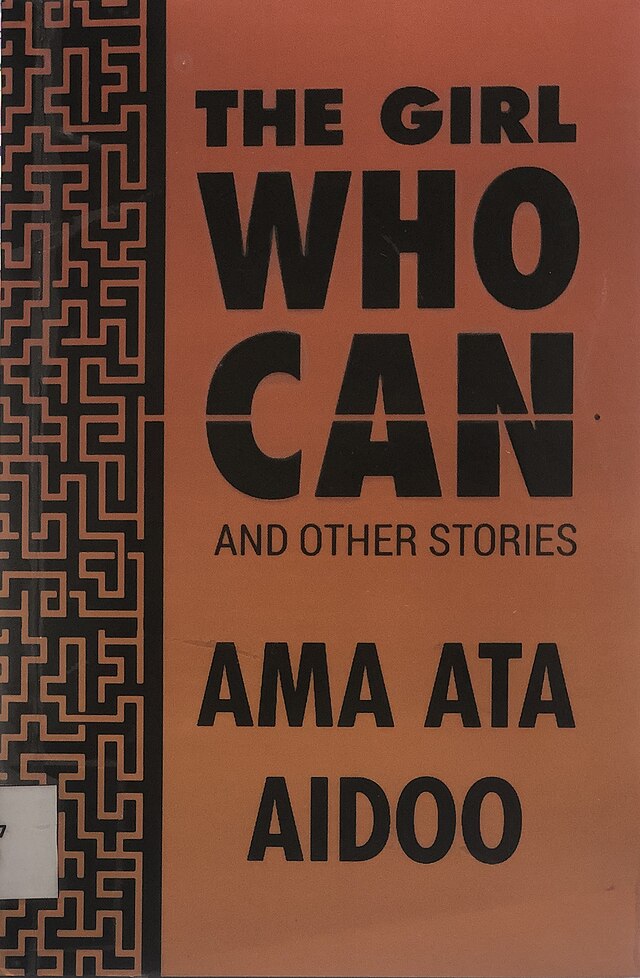
By Rose A. Sackeyfio, Winston-Salem State University
Prolific author and former Ghanaian education minister Ama Ata Aidoo passed away on 31 May 2023 at the age of 81. News of her death reverberated around the world, proof of her towering influence in literary, feminist and political spaces.
Aidoo was Ghana’s foremost woman writer and her distinguished career spanned several decades. Her literary contribution places her among the first generation of African women writers of the post-independence era. After independence in Ghana in 1957 she became a leading feminist voice within postcolonial writing.
For over 20 years, my research, scholarship and teaching has explored the literature of African women writers, including Aidoo. My work celebrates their remarkable contributions to women’s and gender studies through literary expression.
Through a feminist lens, Aidoo’s writing conveys great insight into the complexities and challenges of African women’s lives in colonial and postcolonial societies. She writes about women who must navigate local norms and expectations, customs and traditions – including race, class and gender inequalities.
A consummate storyteller, Aidoo captures in her body of writing the dynamism of Ghanaian and African women’s lives. Strong women characters exhibit intelligence and agency in the search for happiness and success.
As a writer and an outspoken thinker, Aidoo was a pioneering global figure.
Who was Ama Ata Aidoo?
Aidoo was born on 23 March 1942 in southern Ghana to a royal family of the Fante ethnic community. Encouraged by her father to pursue western education, she began writing at 15. After completing school in Cape Coast, she attended the University of Ghana, where she majored in English literature.
At university she participated in the Ghana Drama Studio and published her first play, Dilemma of a Ghost, in 1965. This was the first play to be published in English by an African woman.
Her teaching career began in 1970 and lasted for over a decade at the University of Cape Coast. But the unfavourable political climate in the country failed to nurture her creative talent. In 1982 she was appointed Minister of Education by head of state Jerry J. Rawlings. She resigned from her position in less than two years because of political repression and migrated to Zimbabwe, where she resumed writing and teaching.
She subsequently taught in the US until her retirement in 2012. Her many literary works have been met with critical acclaim, documentaries and robust scholarly engagement.
Her writing
Aidoo repositioned women’s writing within a male-dominated canon in African literature during the mid-1960s. Dilemma of a Ghost was followed by her second play, Anowa, in 1970.
Her novels Our Sister Killjoy: or Reflections of a Black-Eyed Squint (1977) and Changes: A Love Story (1991) disrupted the stereotypical portrayals of women that were common in male-authored African texts. In both, Aidoo crafted strong, intelligent and outspoken female protagonists – a form of “writing back” to reclaim African women’s voices from the literary margins.
Important themes in Aidoo’s works include postcolonial perspectives, feminist expression and the interplay of tradition and modernity. She also explored the relationship between Ghana and its diaspora in the rest of the world.
Aside from her novels and drama, Aidoo produced multiple works across genres of poetry, short fiction, essays and literary criticism. Her literary style draws heavily upon African oral traditions and a combination of prose and poetry.
Key works
I’m fortunate to have experienced a rewarding friendship with Aidoo that began in 2012, at the African Literature Association conference. I cherish the memory of her warmth and hospitality and her insightful perspectives on contemporary women’s issues. Her fiction inspired my early scholarly engagement with victimhood and agency in the work of African women writers and influenced my approach to feminist-inspired African texts.
Of particular interest to me have been her novel Changes: A Love Story, the short story collection No Sweetness Here and the play Anowa. In these works Aidoo presents mixed outcomes for women characters as they respond to patriarchy, urbanisation and conflicting demands of modernity in Ghana.
Changes skilfully examines the complexities of Ghanaian women’s difficult choices and their responsibility for their destiny in life. Aidoo interrogates the extent to which a woman who follows her own path ends up better off than the woman who obeys conventional social norms.
No Sweetness Here portrays Ghanaian women faced with choices that challenge these norms and expectations and who must deal with the realities of the modern world of social flux and changing identity.
Anowa is set in the 1800s in colonial Ghana, where feminist themes emerge through the actions of the female protagonist. Anowa rebels against her parents’ authority and traditional roles for women by marrying a man her family has rejected. The outcome for her is tragic.
As an outspoken voice for women, Aidoo articulated the impact of social, economic and political forces on the lives of African women. She asserts:
On the whole, African traditional societies seem to have been at odds with themselves as to what exactly to do with women.
This dilemma lies at the crux of the feminist perspectives found in her writing. They underscore the pressing need for social transformation and equality for women.
Legacy
Aidoo’s legacy may be seen in the outpouring of African literature in the 21st century by women authors who now dominate the field. A new generation of leading women writers from Africa owe their inspiration to Ama Ata Aidoo and other pioneers like Flora Nwapa and Buchi Emecheta from Nigeria and Senegal’s Mariama Ba. They all broke barriers for women as literary godmothers of feminist expression and through innovative ways of telling the African story.
Ghana and the world may have lost a commanding presence on the literary stage but her works will remain as cherished classics in African and world literature.
_____![]()
Rose A. Sackeyfio, Associate Professor of English and Liberal Studies, Winston-Salem State University
This article is republished from The Conversation under a Creative Commons license. Read the original article.



